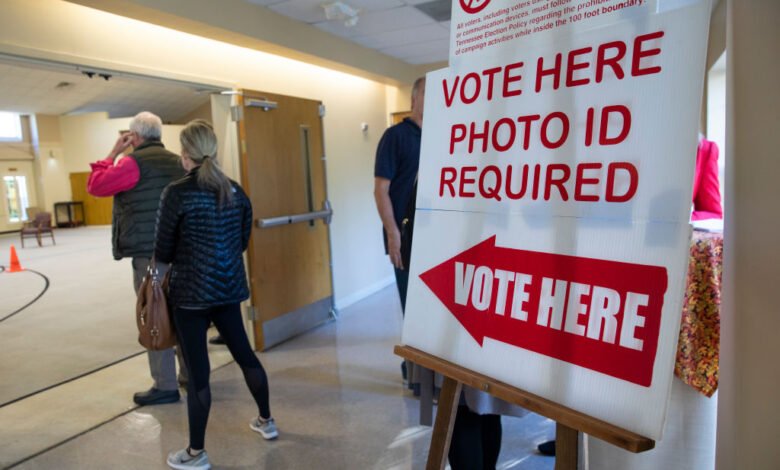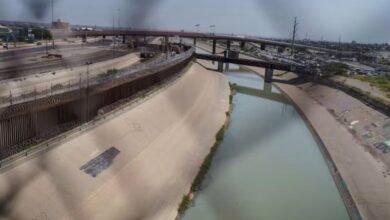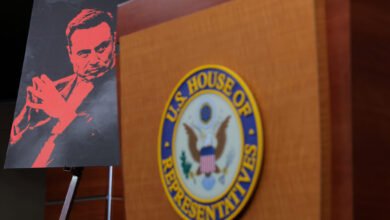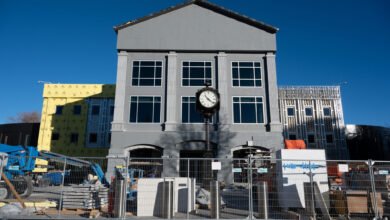Proponents of Question 7 don’t want my people – or yours

Imagine driving hours to cast your vote, eager to make your voice heard, only to be told, “Sorry, you can’t vote today—you don’t have the right kind of ID.” It’s like showing up to a wedding in another state, buying an expensive, thoughtful gift, only to be told, “You were invited to the ceremony, but not the reception.” You’re left standing there, confused, frustrated, and wondering why you’re not allowed to participate.
That’s exactly what will happen to Indigenous, Black, and Brown Nevadans if Question 7—the voter ID initiative on the ballot this November—advances. Don’t be fooled by the proponents’ claims of “election integrity.” This initiative isn’t about making our elections safer. It’s about making sure fewer of us can vote. It’s about putting up barriers to silence marginalized communities at the ballot box.
I know the importance of identity. I can trace my lineage back generations. I know the names and stories of my ancestors who canoed from Polynesia to Hawai’i almost a thousand years ago. I was named after my great-great-grandmother, who got her name from her great-grandmother. My identity is tied to the land and sea; my connection to my heritage runs deep. But none of that will matter if Question 7 passes.
Yes, Question 7 allows for Tribal photo ID cards, but here’s the problem: Nevada’s 28 federally recognized Tribes don’t have a uniform ID. Each Tribe is sovereign, and the forms of identification they issue vary. Who can guarantee that Tribal members will have the kinds of ID the law demands—IDs that cost money and take time to obtain? Voters living in rural or Tribal communities will be forced to travel long distances to a DMV just to get a state-approved ID. Imagine asking an elder to drive hours just to get the “right” piece of plastic to exercise a right they’ve had their entire adult life.
Question 7 would require photo ID for in-person voting, additional info on mail ballots
This isn’t just a burden—it’s a deliberate tactic to suppress communities with a longstanding history of being excluded and silenced. Proponents of Question 7 want you to believe that voter ID is the one-size-fits-all solution to prevent voter fraud. But here’s what they’re not telling you: voter fraud is incredibly rare. A comprehensive study covering more than a billion ballots cast between 2000 and 2014 found only 31 credible cases of voter impersonation fraud. Thirty-one out of over a billion.
Even more telling is that Republicans themselves have recently been charged and convicted of voter fraud. So ask yourself: why are they pushing this regressive initiative if voter fraud is being committed by those who have likeminded views as them? The answer is simple: they’re afraid of what happens when communities of color, Indigenous people, and those without economic means turn out to vote. They know our votes matter. They know we have the power to decide elections. And that’s exactly why they want to make it harder for us to vote.
This isn’t about protecting elections. It’s about protecting power for a privileged few. Voter ID laws don’t strengthen democracy—they undermine it. They’re designed to make sure people like me, people from rural and Tribal communities, people who don’t have easy access to a DMV or the means to get an ID, are shut out of the process. If you’re comfortable with that, ask yourself who’s benefiting from making voting harder for the rest of us.
If you care about justice, fairness, and the right to be heard, Question 7 should set off alarm bells. This isn’t just about a piece of ID. It’s about whether our democracy truly represents all of us or just the ones who can jump through a maze of barriers to vote. It’s about whether we’re okay with silencing the voices that have fought the hardest to be heard.
The proponents behind Question 7 don’t want Black and Brown people to vote. They want to silence our voices and take away our power. We cannot, and we will not, let that happen.




